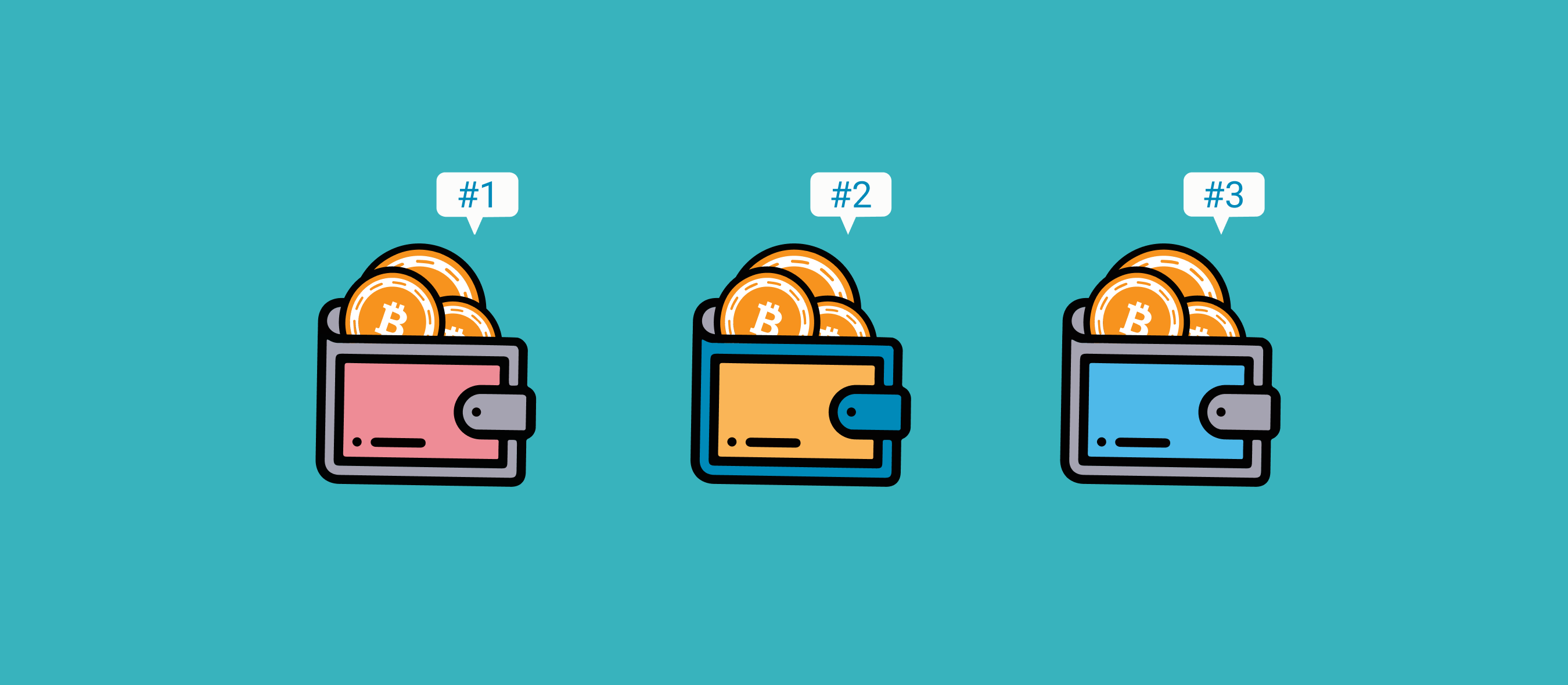Cryptocurrency Wallets Guide

This blog post will cover:
- Where to store cryptocurrency?
- What is crypto wallet?
- What is the difference between full node, light, and hosted wallets?
- What is the difference between software, hardware, and “paper” wallets?
- How many wallets are required?
- How to choose a wallet?
Where to store cryptocurrency?
Where do you keep your real money? In the wallet, right? The same thing is with cryptocurrency. There are digital wallets to store your cryptocurrency. Although it sounds simple, crypto wallets have their peculiarities. Let's take a better look at them.
What is crypto wallet?
Cryptocurrency wallet is a program that interacts with blockchains so that users could exchange funds, conduct operations and monitor their balance.
First of all, you need to know that digital wallet consists of two important parts - a private key and a public address. The users need the private key to access their wallet. Sometimes there may be more than one private keys. So this information must be really private and protected. The public address is provided to other users. It is used to receive digital currency.
What is the difference between full node, light, and hosted wallets?
There are three types of wallets: full node, light, and hosted. Each type has its own way of receiving and possessing the private keys. The way of users’ interacting with the blockchain also is different.
- Full node wallet downloads the whole blockchain on users’ computers. In other words it downloads all the data about the coin network. This type of wallet makes any user a full-fledged member of the blockchain. But it takes a lot of memory on the computer. For example, for Bitcoin it need 240 Gb. The private key is in user's possession.
- Light wallet doesn't download the whole blockchain on user's computer. It uses other resources to apply to the blockchain. It may be a software or an application in browser. This type of wallets requires significantly less space than full node wallets. On the other hand, since these wallets use exterior apps to access the blockchain they are considered more vulnerable. For example, before the transaction makes its way to the blockchain it may be caught by cheaters. The private key is in user's possession.
- Hosted wallet doesn't have any access to the blockchain. After the registration on website or downloading app user receives login and password. In this case, the wallet hold private key, so user doesn't possess the private key. At the same time hosted wallets allow users to restore records and do backup. Thus, hosted wallets are similar to usual bank accounts. All the stock exchanges work like this.
What is the difference between software, hardware, and “paper” wallets?
Depending on the way of storing the private keys wallets may be divided into software, hardware, and “paper”.
- Software wallets are programs that can be installed on your device such as a computer, laptop or your smartphone. So software wallets can be divided into desktop wallets, mobile wallets or online wallets. Desktop and mobile wallets are accessible only from a single device. This helps to keep it safe. Although there is a risk of virus or hacking attack. Also your wallet can be in danger if your device is damaged. Online wallets run on the cloud. They can be accessed from any device. It is definitely convenient, but it makes your wallet more vulnerable.
- As it was said before hardware wallets require additional devices. Hardware wallets store user’s private key on a hardware device. And even though they still make transactions online the important information is stored offline. That helps to increase security.
- The name “paper” refers to software that securely generates a pair of keys which are printed in the form of QR code. The important part is the keys are generated offline. There is no risk of exposure. Basically, it is an offline method of storage.
How many wallets are required?
Originally each cryptocurrency required its own wallet. Thankfully now there is an opportunity to install multi-currency wallet. They are convenient to use. There is one important thing you should know before choosing one. Multi-currency wallets can be lite and hosted.
If you use lite wallet, you have private keys and you are the only person who has control over your currency.
Hosted wallets remind banking system. You have login and password, but you don't control your cryptocurrency.
So while choosing which multi-currency wallet to use, consider how much control over your amount you want to have.
How to choose a wallet?
Nowadays there are a lot of different wallets. And at the beginning it may be hard to choose the one you need. You may consider answering several questions to understand your needs better:
- Are you going to use cryptocurrency daily or store it as an investment?
- Are you going to use one or many cryptocurrencies?
- Do you need access to your wallet from anywhere but one device?
These three questions will help you to find a suitable wallet. If you need more information you can visit cryptocurrency website. Developers of every coin publish a list of the safest wallets and the wallets that interact with the exact cryptocurrency in the best way.
Hopefully, this article was helpful and you found the answers to your questions about cryptocurrency wallets.
Still have some questions? Please don't hesitate to ask. We will also welcome your feedback. For more information about specific subjects check out other articles.

